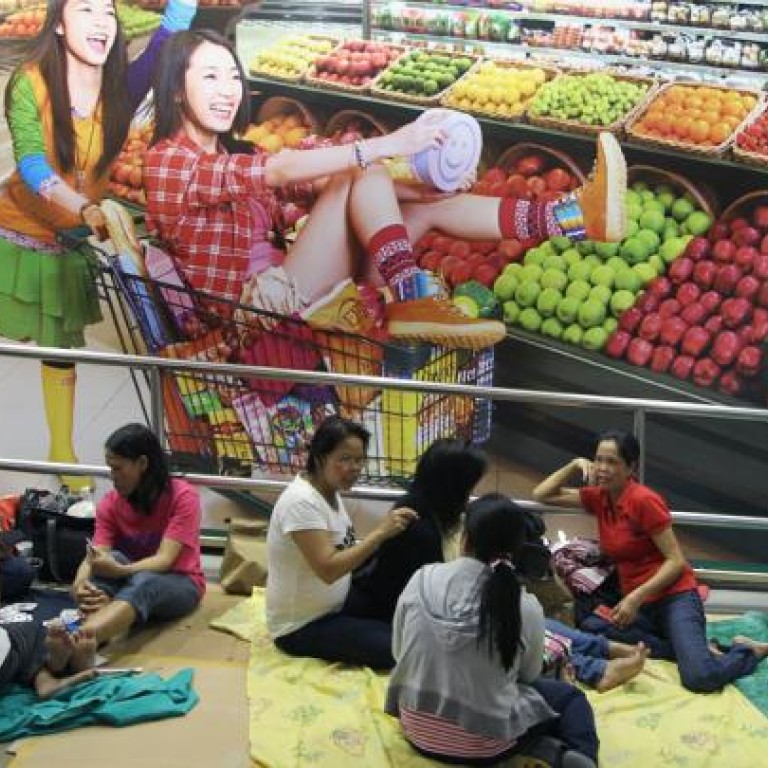
Gender equality in Hong Kong comes at the expense of foreign domestic workers
Louisa Mitchell says Hong Kong women's 'progress' towards gender equality is nevertheless built on the work of an army of foreign women
Early last month, a group of foreign domestic helpers protested against the requirement that they live with their employers. They disagreed with the requirement's rationale that living-in is necessary because it offers them support in a city where rent is extortionate and migrant women are vulnerable. But PathFinders, an organisation that works with distressed migrant workers, says the live-in arrangement puts helpers on an uneven footing with their employers and permits abuse. This comes on top of their "minimum allowable wage" of HK$3,920 per month, low by Hong Kong standards, and other poor treatment.
The live-in requirement also explains why Hong Kong has few of the care options that other cities offer, such as part-time help, workplace crèches and "nanny share" arrangements. The difficulty of hiring temporary or part-time help means that if a helper falls sick or pregnant, she is invariably dismissed.
There are also many families that have neither the means nor the space to hire a full-time, live-in helper. In the past, the prevalence of extended families under one roof meant there were family members available to provide care as needed, but now the average household size has shrunk.
For the 10 per cent of households that can afford help, the close to 300,000 domestic helpers in Hong Kong are credited with fulfilling an invaluable role, enabling middle-class women to stay in the workforce. In turn, an increase in the female labour force participation is often trotted out as evidence that gender equality is on the way to being achieved.
But is it really? A recent generational analysis of Hong Kong women's progress commissioned by Civic Exchange and The Women's Foundation showed that the median monthly employment earnings for a woman in her 20s in 2011 was HK$8,800. But when helpers (who constitute 17 per cent of women in their 20s) were excluded, it was HK$10,000, the same as for men. Similarly, for women in their 30s, excluding helpers (who made up 19 per cent of that age group), their earnings were HK$14,500, close to the HK$15,000 for men.
The truth is that the earnings equality between Hong Kong's men and women has been achieved almost entirely at the expense of these helpers. Hong Kong, as a society, still undervalues "women's work".
In addition, research by the Chinese University suggested that in some households, the employment of helpers led to the almost complete withdrawal of male partners from domestic work. Yet women need greater equality at home in order to achieve greater equality in the workplace, a theme underscored by Facebook chief operating officer Sheryl Sandberg in her recent book, .
As with the thorny issue of right of abode, the recent protest over living-in emphasises the need for a broader debate about the rights of helpers and their true economic and social value.
Introducing greater flexibility into the domestic help market would benefit a larger number of Hong Kong families. For this to happen, the administration needs to address the constraints imposed by housing costs, and traditional attitudes towards foreign domestic helpers need to change.
